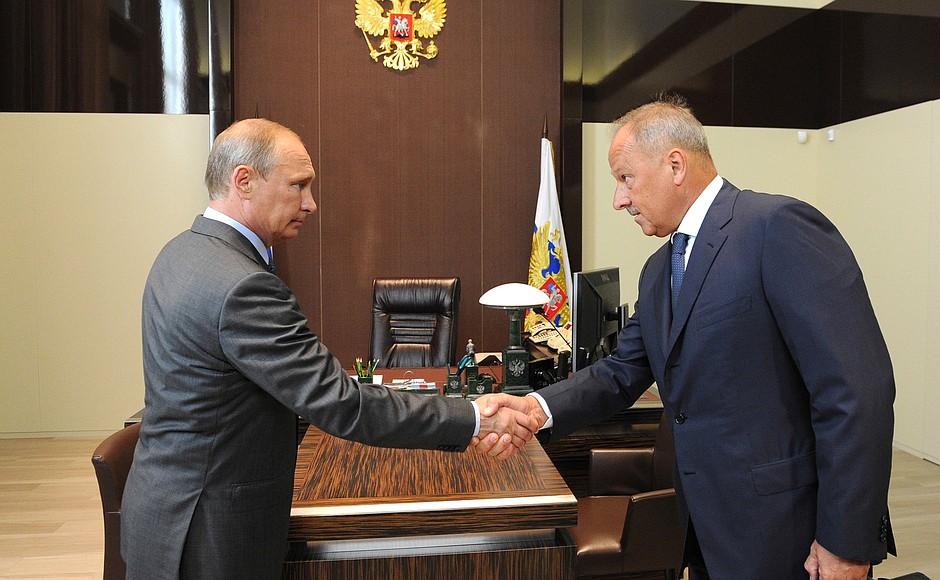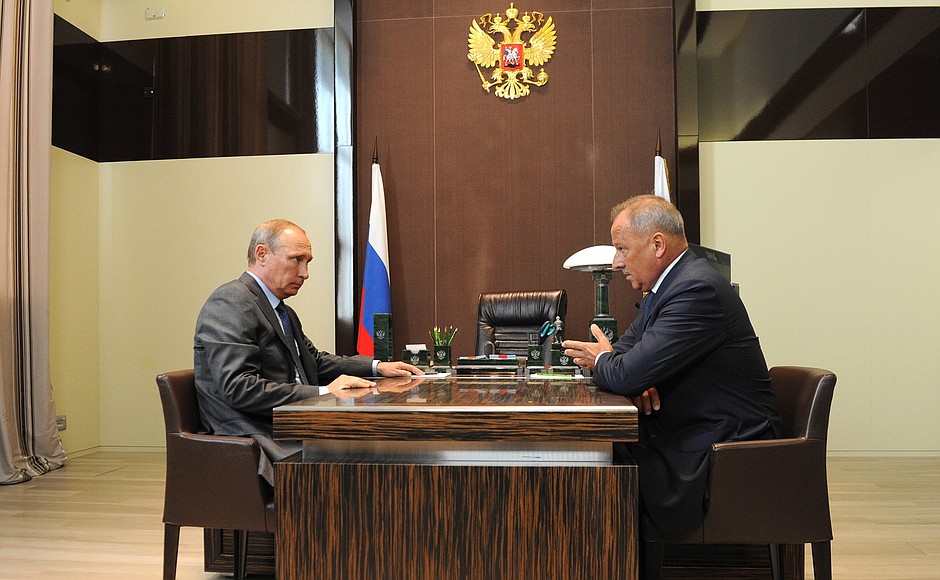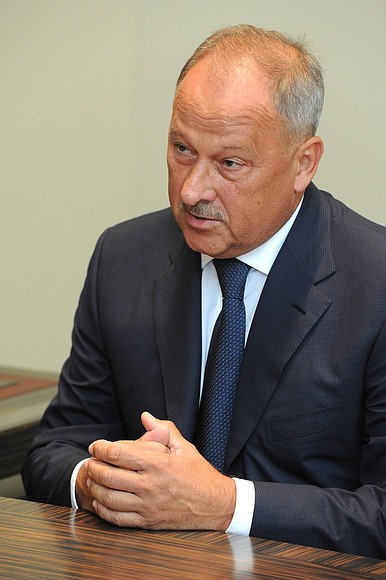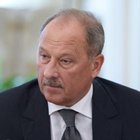President of Russia Vladimir Putin: Mr Dmitriev, let’s start with the question of support for non-raw materials exports. You wanted to discuss this subject. Please, go ahead.
Chairman of Vnesheconombank Vladimir Dmitriev: I would like to report that we have established a one-window system that takes into account the establishment of the Russian Export Centre. This system is already in operation now. We expect that Roseksimbank and the Export Insurance Agency will soon join it too. Even now, we have already made substantial progress in providing support for industrial exports, and this is reflected in our increased lending to Russian exporters. Loan volumes are quite impressive now, but the main thing is that we are on a very good growth curve.
Vnesheconombank’s loan portfolio now comes to around 350 billion rubles. This is money used to support Russian exports – guarantees and loans for Russian suppliers and for foreign importers of Russian goods. Compared to July 2013, when the comprehensive support system for industrial exports was put into practice, the volume of guarantees has grown five-fold, and loans have increased 30-fold.
This is significant growth and we think this trend will continue. We already have 550 billion rubles worth of loans in various stages of readiness, plus the 330 billion I mentioned, which have already been accorded.
It is important that this support system for industrial exports rests on a robust state support system. This system makes use of mechanisms permitted within the Organisation for Economic Cooperation and Development framework, subsidised interest rates and other possibilities that we can offer Russian exporters.
Also important to note is that the Export Insurance Agency of Russia (EXIAR) already has a volume of insurance coverage deals worth a total 130 billion rubles. This is on top of the figures I gave you earlier. Here too, the growth is impressive and we have good prospects ahead for moving this work forward.
We hope that these state support measures will be stable over the long term. In this respect, we are working actively with the Industry and Trade Ministry and the Economic Development Ministry. As far as the sectors covered go, we are working above all with goods in energy machine-building, transport machine-building, agricultural equipment, aircraft manufacturing, and the automotive industry.
The outreach is broad and covers not only our neighbouring countries, but also markets in which we are only now restoring the positions we formerly held, such as supply of energy sector machine tools and equipment for Latin American countries such as Ecuador and Argentina.
Mongolia is a market we have yet to develop, but now with the opportunities and mechanisms at EXIAR’s disposal, we are developing markets in Southeast Asia and Central Asia.
I can state with confidence that the system works, and most importantly, exporters see that the mechanisms the authorities have established are reliable.
Vladimir Putin: Good, but as you see it, in which sectors and markets are these mechanisms working most effectively today?
Vladimir Dmitriev: I would highlight Latin American markets above all. I think the agreement to supply the Sukhoi Superjet to Mexico was a breakthrough deal. The contract is for 20 planes, and they are flying not only in Mexico itself but also abroad. The client is happy, and the main thing is that the planes have demonstrated their reliability, good flight characteristics and cost effectiveness. I already mentioned the supplies of energy sector equipment to Ecuador and Argentina.
I think these are the most promising markets in terms of geographical reach, and also demonstrate very well the prospects for sales of Russian equipment abroad.
Vladimir Putin: As far as being cost effective goes, there is room for improvement. Let us discuss this further.
<…>



